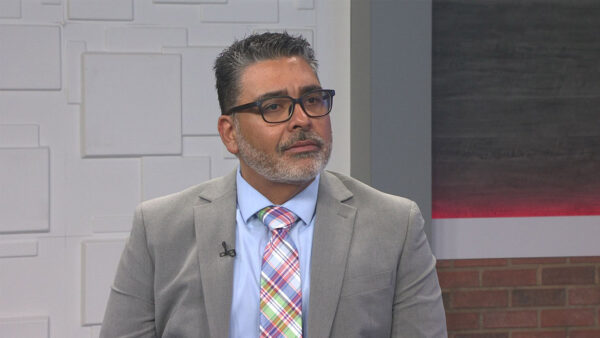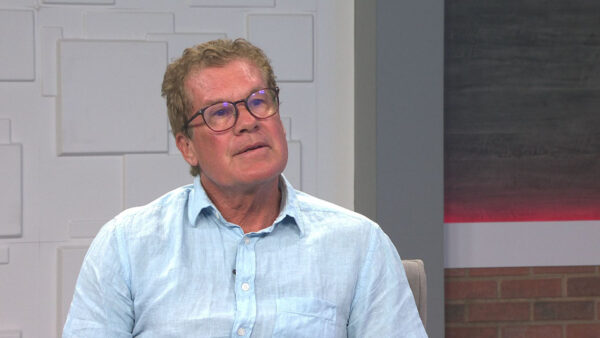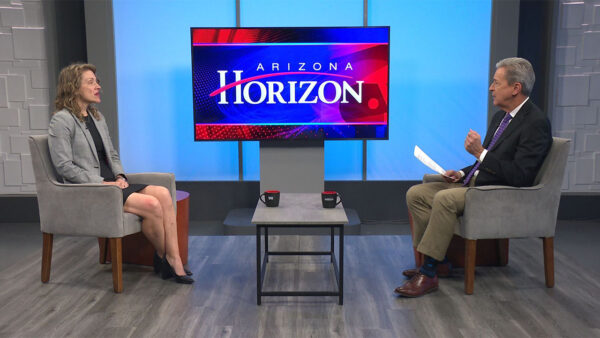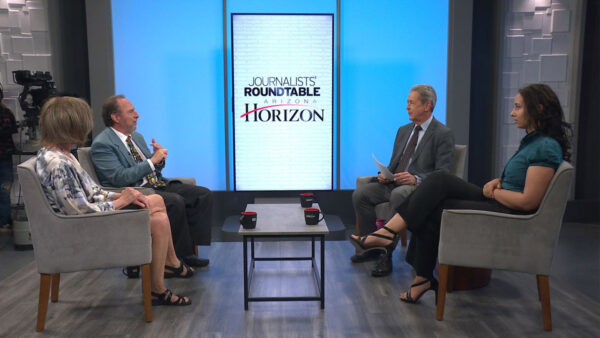ASU law professor Paul Bender, an expert in constitutional law, explains “executive privilege”, a power President Obama invoked this week to avoid turning over to Congress certain Justice Department documents related to the botched anti-gun smuggling operation known as “Fast and Furious”. And, as the nation awaits U.S. Supreme court rulings on SB 1070 and the Affordable Care Act, Bender explains the High Court’s process for issuing opinions.
Ted Simons: We're still waiting for the Supreme Court to issue opinions on cases involving Arizona's SB1070 and President Obama's health reform law known as the affordable care act. An article in the Arizona Republic explained how the high court goes about issuing its opinions. Here with more is ASU law professor Paul Bender, who has worked and argued cases before the U.S. Supreme Court. Thanks for joining us. Why have we not had an SB1070 ruling yet?
Paul Bender: The case was just argued at the end of April, and it usually takes two or three months for the Supreme Court to prepare an opinion in a case because especially a case where there's dissent, and I think there will be dissent no matter which way it comes out, because somebody is assigned the majority opinion and they may take a long time writing it. Then they circulate it, then the people who are going to dissent read that and write their dissent. Then people who write the majority opinion may want to respond to that and there may be a lot of negotiation between justices, say you write the majority opinion I'm part of the majority, I say, I don't like that paragraph. I can't join it if you leave that in. That kind of thing happens. The same thing can happen with the dissent although it's not as important F. you don't like mine go write your own. It's important because that's the law. So they can be a lot of bickering about that kind of thing. So in fact it's a very short time for SB1070 because it has to come out before the end of the term F. it didn't have to come out before the end of the term it would probably come out in the summer, fall. But the U.S. Supreme Court unlike the Arizona Supreme Court has fixed terms. They start in the first week in October and start hearing arguments. Every case they hear argued from that time on they promise that they will decide by the time they recess for the summer. They usually recess for the summer at the end of June. So that creates a backup. We have every case that's been argued has to be decided probably by the end of next week, more likely by Wednesday or Thursday of next week. So you always have bunch off pins waiting at the end.
Ted Simons: Is it possible the healthcare act SB1070 and other cases have been decided, opinions have been written, but they are waiting to release them?
Paul Bender: Well, of course they have been decided although it's tentative until it comes down and of course opinions have been written. I don't think anybody is still writing a majority opinion with one week left in the term. But you're waiting until everybody on the court is satisfied to let the opinion come down. As soon as everybody is finished it will come down, but with a case with a lot of different opinions and a lot of acrimony, the process of fin finishing can take a lot of time.
Ted Simons: SB1070 where there are separate parts, that would add to the complications?
Paul Bender: Opinions have tended to get longer. When I was a law clerk, the that my justice, justice Frankfurter wrote, they came out quickly because he worked quickly. If he was going to do something himself he would say I'll take this one and two days last he would have a draft. If you're a law clerk and somebody said, you want to write a Supreme Court opinion, you're not going to do that in a week or two. You're going to take a long time and think about it. In chambers where the law clerk writes the first draft it takes a long time N. most cases a law clerk writes the first draft.
Ted Simons: Interesting. How much does the court consider the possible impact of a ruling in terms of what is released, how it's released?
Paul Bender: Well, how is always the same. They announce it in court. They used to read their opinions. It could take all day. Some read the footnotes. Some time ago they changed. Now they make usually very, very brief announcements. Sometimes when someone is really angry or really cares they may spend a few minutes more. It's always done that way. Whether they time opinions to come down at a certain time, I don't think so. I don't think they think that way, hey -- they don't do things on Fridays. They just -- that's their tradition lately. It's going to be Monday through Thursday. I don't think they care whether it is. More importantly, I think they now are reluctant to hand down two or three really important opinions on the same day because that's unfair to the media. For example, with the affordable care act and 1070, I would suspect they are not going to come down the same day. They will come down on different days. That may be deliberate to make sure they don't put the media in a position of having to write about two really important cases in a short period of time.
Ted Simons: Which would come first, do you think?
Paul Bender: Of those two? Since SB1070 was the last case argued in the term and I'm pretty sure it's fairly contentious, I would think the chances are it will be the last case. But you never can tell. It all depends when the opinion finished, who is writing. Very personal matter.
Ted Simons: From a distance we all see something very formal going on with papers being passed and what do you think about this, how do you think about that, please ask the justice to do this. Is it that way or can it be as personal and informal as a telephone call at night?
Paul Bender: You mean the process of writing the opinion?
Ted Simons: Yes.
Paul Bender: It can be anything but my sense is that especially because law clerks are writing the first draft, law clerks are not going to go collaborate with other law clerks. Most justices tell them not to. I don't think there's very much collaboration when opinions are first developed. There was a time when there was more that justice Brennan for example used to to get votes fort side he wanted would talk to the people on the other side, hey, if I change it this way would you change the opinion? I don't think that happens very much now. I think the opinion preparation is initially a private thing. The justice and the law clerk. But when the opinion is circulated, then another justice may say, I'm with you on everything but not that. So would you please take that out, or you could say this better. Then there gets to be that. But that's more like editing rather than true collaboration. Supposedly they know what each other thinks because at the conference when they decide the case tentatively they say what they think. In the old days, those conferences would go on for a long time, so people would make speeches. I remember one case justice Frankfurter told me he talked for 45 minutes about a case to the other justices. They say very little at the conference. I affirm or I agree. When you're preparing an opinion you don't know what the other justices think except for what they said in oral argument. That's one of the functions oral argument serves. It let's the persons writing the opinion know what the other justices are thinking.
Ted Simons: Does that collaboration change court to court? You mentioned that the initial round may be relatively brief. Everyone knows, but in the past, perhaps in the future, could you have real conversation going there?
Paul Bender: Absolutely. It's very personal. It can change from time to time. For example, I would think justice Kagan is a collaborator. She just seems to be that kind of a person. I would expect she would try to talk to other people more than some other people like I would assume Clarence Thomas is not a collaborator on his opinions. I think justice Breyer probably is. It can turn on which case it is. It can change. But this court I don't think spends a lot of time talking to each other.
Ted Simons: Yeah. That could change.
Paul Bender: Of course. It could change. I think that's too bad. I think the court would be better if there was more collaboration and discussion.
Ted Simons: Before we get to the executive privilege argument, when it comes to SB1070, the affordable care act, do you suspect in to to -- there's fragments all over the place, in general will we be seeing broad opinions? Will we be seeing narrow opinions?
Paul Bender: You can't tell. You really can't tell. They will sometimes come out with broad opinions. These are such broad, delicate cases, probably the chances are that the opinions will be narrow, but if the conservatives, for example, were to get a fifth vote, write a broad opinion, limiting federal legislative power over things like medical insurance, they could write a broad opinion.
Ted Simons: Let's get to this executive privilege, the president invoking executive privilege to shield some Justice Department documents regarding "Fast and Furious." What is executive privilege and how often is this invoked?
Paul Bender: It would be more important to ask is there executive privilege. We know that there is presidential privileges. In the Nixon case, which was a prelude to Nixon resigning, the Supreme Court said Nixon had to divulge certain documents but in saying that it said there's a presumptive privilege of the president with regard to things he said or things said to him. That's not what's going on in the current situation with Eric Holder. The president didn't participate in any of those conversations that they want records of. Nobody knows whether there is a general executive privilege so that executive department can say we don't want to give you this information because we want to keep it confidential. There are some areas where it's clear there is privilege, material that would affect national security and other things like that. Otherwise there's no -- the reason there's no law is because there's very little litigation. The reason there's very -- think about it. House is about to vote to hold Eric Holder in contempt. Supppose they do that. So they refer that prosecution for contempt to who?
Ted Simons: Obviously they can't refer it back to Eric Holder. They refer it to some federal court somewhere?
Paul Bender: No. Has to go to a federal prosecutor. Probably the District of Columbia. He works for Eric Holder. So you don't find too many cases where Congress gets a federal executive department lawyer to sue another member of the executive department for contempt or to charge him with contempt for not turning something over. So that's why there's very little litigation about this and therefore things are usually compromised. Somebody backs down. They both back down.
Ted Simons: What if Congress doesn't back down? They decide to take this as far to a wall as they can and try to get some sort of court decision on this. It almost seems like both sides are not willing to do that because you have too much to lose.
Paul Bender: I think both sides are unwilling to do that. I can't believe Eric Holder will let a United States attorney prosecute him for contempt of Congress. He's the boss.
Ted Simons: There's no other way for that -- [speaking simultaneously]
Paul Bender: It's worked out politically. I think that's probably the best way to work those things out. How would a court -- a court isn't the right person to decide how much of this should be private and how much not. The whole notion that anything should be private presumptively I think is questionable. The Supreme Court said presidential communications are presumptively private because we want to let the president feel free to say things and have things said to him without them being disclosed, but they never said that about any other member of the executive branch. They say it about themselves, that communication between their law clerks and themselves are confident sham, but this case involves discussions within the Justice Department by mid level, maybe high level officials about things. There's no law that makes it clear that that's privileged in any way.
Ted Simons: All right. Interesting stuff. Lots of stuff going on.
Paul Bender: Well, there always is this time of year. Very exciting time of year for people who teach constitutional law.
Ted Simons: Next week a lot of lessons going on.
Paul Bender: School's out.
Ted Simons: Good to have you here. Thanks for joining us.
Paul Bender:Professor of Law, ASU;




















